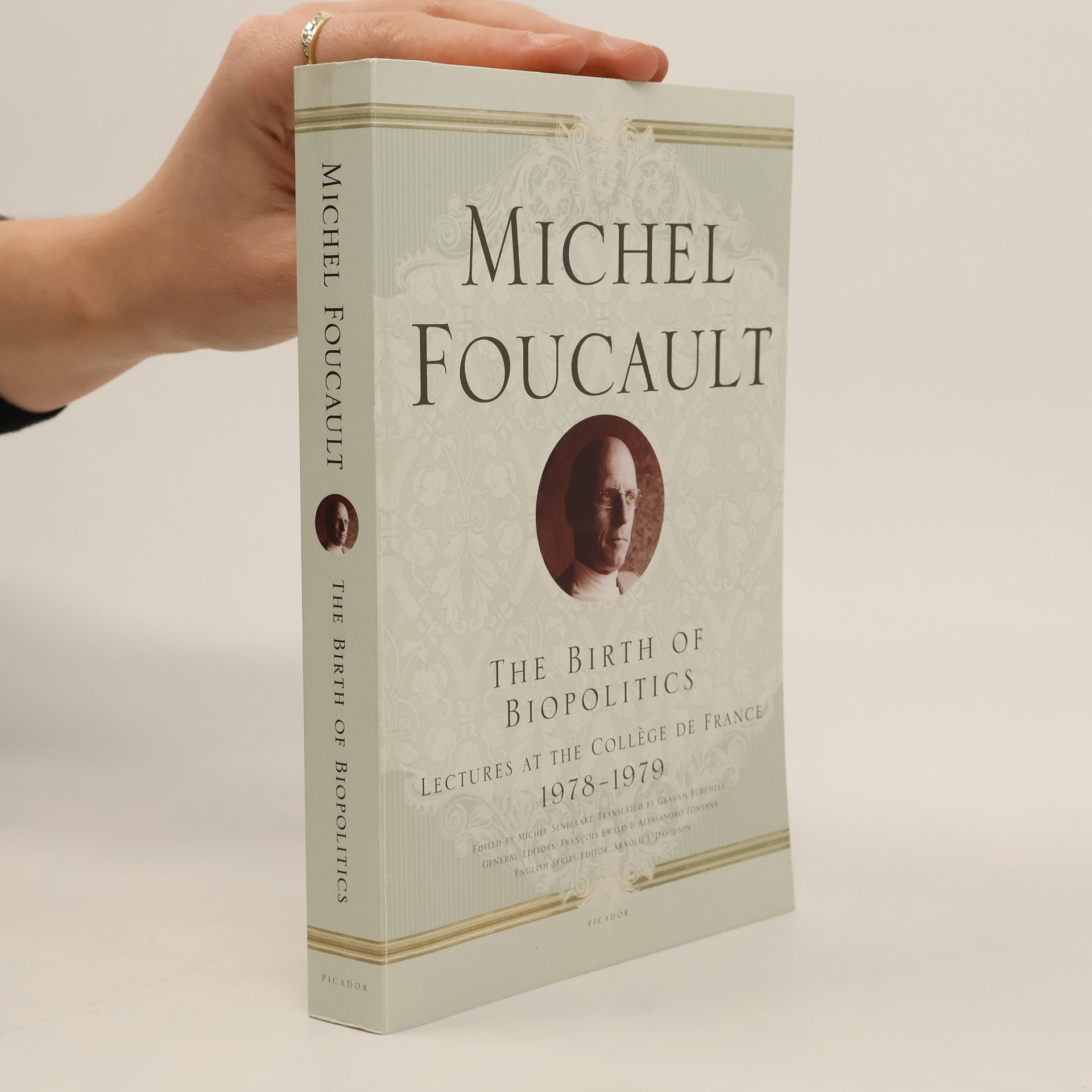I Pilastri: Storia della follia nell'età classica
- 670 pages
- 24 hours of reading
Michel Foucault was a French philosopher and historian of ideas, whose work focused on critical studies of social institutions and systems of power. He explored the relationship between knowledge and power, examining the discourses that shape our understanding of medicine, psychiatry, and the prison system. His methodology, influenced by Nietzsche, sought to uncover the historical roots of our modern thought systems. Foucault's influence on academic circles remains profound.







V roce 1980 Foucault přednesl na Dartmouth College dvě přednášky nazvané „Pravda a subjektivita“ a „Křesťanství a doznání“, v nichž stopuje genealogický původ moderního vztahu k vlastnímu já ve starověkých a raně křesťanských praktikách sebezpytování a doznání. Klíčovým zlomem pro konstituci moderní subjektivity je pro něj proměna delfské zásady gnóthi seauton v klášterní imperativ doznání všech myšlenek a tužeb. Předložený překlad obsahuje kromě obou těchto přednášek také Foucaultovu diskusi s publikem v Berkeley a rozhovor, v němž autor přibližuje cíle své historické analýzy vztahů mezi subjektivitou a pravdou. Spojujícím prvkem těchto textů je Foucaultovo přesvědčení, že jedním z významných politických úkolů současnosti je „politika nás samých.“
Bisher unbekannt und unveröffentlicht | Foucaults Geschichte der Philosophie von Decartes bis zum 20. Jahrhundert
Was ist Philosophie? Und welche Rolle spielt sie in der Gegenwartsgesellschaft? Zwischen Juli und Oktober 1966, einige Monate nachdem er durch das Erscheinen von Die Ordnung der Dinge schlagartig zum neuen Star der Philosophie aufgestiegen war, gab Michel Foucault in einem sorgfältig durchkomponierten Manuskript seine Antwort auf diese bis heute viel diskutierten Fragen. Im Gegensatz zu denjenigen, die entweder das Wesen der Philosophie enthüllen oder sie gleich für tot erklären wollen, begreift Foucault sie als einen Diskurs, dessen Ökonomie im Vergleich mit anderen Diskursen – wissenschaftlichen, literarischen, alltäglichen, religiösen – herausgearbeitet werden muss.Der Diskurs der Philosophie schlägt somit eine neue Art und Weise der Philosophiegeschichtsschreibung vor, die von der reinen Kommentierung der großen Denker wegführt. Nietzsche nimmt allerdings einen besonderen Platz ein, da er eine neue Epoche einleitet, in der die Philosophie zur Gegenwartsdiagnose wird: Von nun an ist es ihre Aufgabe, einer Gesellschaft zu erklären, was ihr Zeitalter ausmacht. Nirgendwo hat Michel Foucault die Ambitionen seines intellektuellen Programms so deutlich gemacht wie in diesem Werk, das fast 60 Jahre nach seiner Niederschrift nun erstmals veröffentlicht wird. Eine kleine Sensation!
Foucault's lectures and interviews from 1978 in Japan are presented in English for the first time, offering insights into his thoughts and philosophies. The book explores the historical context of these discussions while highlighting their ongoing significance and relevance in contemporary society. Through this collection, readers gain a deeper understanding of Foucault's ideas and their implications for modern thought.
Oproti mechanismům, jimiž se panovník až do doby klasicismu snažil zajistit bezpečí svého teritoria, staví Foucault technologie bezpečnosti, resp. korelace mezi nimi a populací. „Teritorium“ a „populace“ slouží jako protikladné póly, mezi nimiž se jeho uvažování rozvíjí. Jak došlo k přechodu od svrchovanosti nad teritoriem k regulaci populace? Jaké byly účinky této proměny na rovině vládních praktik? Objevení se populace jako ideje a jako reality nebylo důležité jen na politické úrovni, mělo také dopad na epistemologické úrovni. Analýza bezpečnostních dispozitivů vztahujících se k populaci vedla Foucaulta postupně k tomu, že zdůraznil pojem „vlády“. Ve svém tradičním smyslu veřejné moci nebo výkonu svrchovanosti nakonec ztratil váhu a začal označovat techniky specifické pro správu populací. Problematický trojúhelník, který sloužil jako původní rámec výzkumu, tak byl nahrazen systematickou řadou bezpečnost–populace–vláda, spolu s níž Foucault v tomto přednáškovém cyklu zavedl pojem „guvernementalita“, jímž se od historie bezpečnostních technologií dostal až ke genealogii moderního státu.
Collection of thirteen essays, for the most part unpublished.
Eindringlich beschreibt der Philosoph Michel Foucault Diego Velázquez‘ berühmtes Bild Las Meninas (»Die Hoffräulein«) von 1656: Ein Bild, das der Kunstgeschichte Rätsel aufgab. Auf den ersten Blick porträtiert es die kleine Prinzessin Margarete von Spanien in kostbarem weißem Brokat, umgeben von ihrem Hofstaat. Doch auf linker Seite mit erhobenem Pinsel und vor seiner Staffelei erkennt der aufmerksame Betrachtende den Maler selbst. Portraitiert das Bild also genaugenommen den Akt des Portraitierens? Wieso aber schaut der Maler so konzentriert zu den Betrachtenden und nicht auf die Leinwand vor ihm? Und das Bild auf dieser Leinwand würde, aus dessen Blickwinkel, doch ein ganz anderes werden, als das, was wir von ihm gemalt wissen… Diego Velázquez malt also nicht das, was er hier sähe, sondern das, was die Betrachter sehen – die ganz hinten im Spiegel zu entdecken sind, der König und die Königin. Maler, König, Zuschauer: eine Verschmelzung, eine Hybris, ein Verwirrspiel der Blicke, das Michel Foucault zu entwirren sucht. Zunächst als Anfangskapitel der 1966 erschienenen Ordnung der Dinge verfasst, wird Foucaults Beschreibung von Velázquez‘ Las Meninas eine Grundsatzschrift des Philosophen: Eindrücklich wird die Dynamik zwischen Betrachtenden und Betrachteten, Subjekt und Objekt, Maler und Modell aufgeschlüsselt und dabei der für Foucaults Denken so zentrale Begriff der Repräsentation eingeführt.
Foucault's exploration of the history of sexuality, initiated in the 1960s through his lectures, reveals significant insights into his evolving ideas. This collection marks the first English publication of these pivotal lectures, providing readers with an opportunity to engage with Foucault's foundational thoughts on sexuality that have shaped contemporary discourse.
Historii seksualności, będącej kontynuacją badań podjętych w Archeologii wiedzy oraz w Nadzorować i karać, poświęcił Michel Foucault ostatnie lata życia, skupiając się w swych analizach na konstelacji zjawisk określanych mianem „seksu” czy „seksualności”. W części pierwszej pokazuje, jak życie seksualne stymulowało wolę dowiedzenia się wszystkiego o seksie; wiedza ta przyjęła usystematyzowaną postać „nauki o seksualności”, co otworzyło z kolei drogę do systemowego zarządzania społecznym życiem seksualnym. W części drugiej kontynuuje Foucault historyczne badania nad źródłami naszej zachodniej seksualności. Skupia się na źródłach starożytnych, greckich, a zwłaszcza rzymskich, czyli na okresie przedchrześcijańskim, w którym zostały wypracowane ramy i najważniejsze formy tej seksualności.